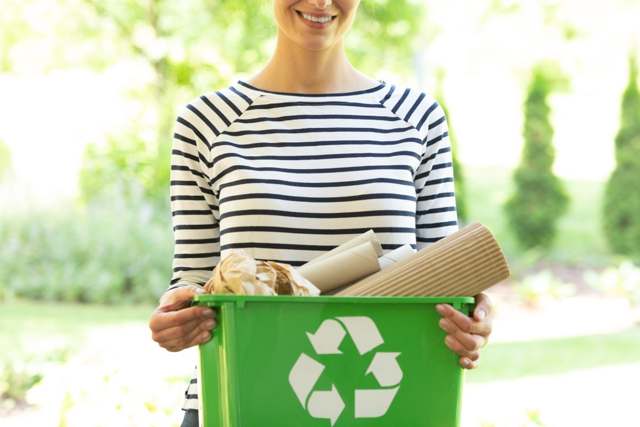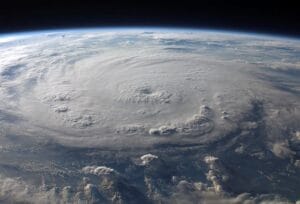Changing the state of our ecosystem might seem like a huge feat. It’s not something to take lightly, but we all have the power to make a difference in our environment. Protecting the wellbeing of our planet is a responsibility we all share, so here are five ways you can do you your part.

1. Plant a Tree
Carbon dioxide is one of the primary contributing factors to the greenhouse effect, which is rapidly driving climate change. One of the simplest ways to combat these emissions is to plant more trees.
Planting a tree is a simple thing that you can do often as you’d like, even if you don’t have space in your own garden. You can donate to an organization that would be happy to do the work for you.
Adding more trees to the ecosystem doesn’t only create oxygen and combat carbon dioxide emissions. This also helps to restore trees lost through deforestation. This organization will plant a tree on your behalf for just $1.
2. Purchase Organic, Locally Grown Produce
Produce from your standard big-box grocery store often travel at least 1,000 miles before they’re on your dinner table. Additionally, many standard fruit and vegetable producers use harmful pesticides that are not only bad for the environment, but they can be harmful to your body.
Heading to your local fruit stand or farmer’s market allows you to know where your food is coming from. By reducing the transportation time, you can be sure that your products required less fuel to get to your point of purchase.
Additionally, choosing organic sources eliminates the dangerous chemicals you’d expect from larger, less conscious distributors.
3. Reconsider Your Method of Travel
Do you drive to and from work every day? Are you planning to fly to a destination that you could reasonably reach via ground transportation?
Becoming more conscious about your commute or vacation travel can make a huge impact.
Opting to carpool, or even buying an energy efficient car, will dramatically reduce your carbon footprint – and your fuel costs.
Taking the train or bus instead of flying requires dramatically less fossil fuels, and you can avoid the hassle of airport security. This can also save you money in baggage fees, and you’ll have the added benefit of enjoying the scenery on the way.
4. Reduce, Reuse, Recycle
This one is a given, but it’s incredibly important. Waste reduction is crucial to protecting the health of our oceans and wildlife.
If you live in an area that offers municipal recycling, check your city’s guidelines to ensure that you’re sorting your materials correctly. This will save space in your waste bin, and you could even save money on garbage bags.
If you don’t have a mandated recycling program, create your own at home! Food waste can be incorporated into your garden or flower bed, and many recycling centers pay for donations. Just make sure that you’re following the facility’s rules in regard to sorting and packaging.
5. Skip Single-Use Containers
Say no to straws, drink lids, and plastic bags. Bringing your own containers and shopping bags is an impactful move that is easy for anyone to do.
Bring a reusable cup to your favorite coffee shop, and keep a few cloth or paper shopping bags in your car or purse. You can even bring your own to-go containers and cutlery the next time you order takeout. Think about how many of those disposable forks and plastic bags you toss out, and bring your own – or go without, if possible.
Making your lifestyle more sustainable doesn’t have to be difficult. Even these small changes can drastically reduce your waste production, while also giving back to the environment in a substantial way.











